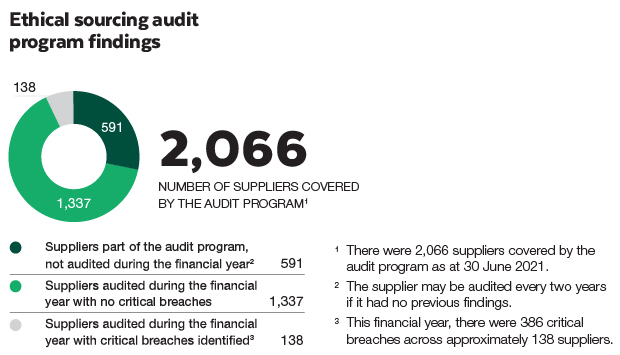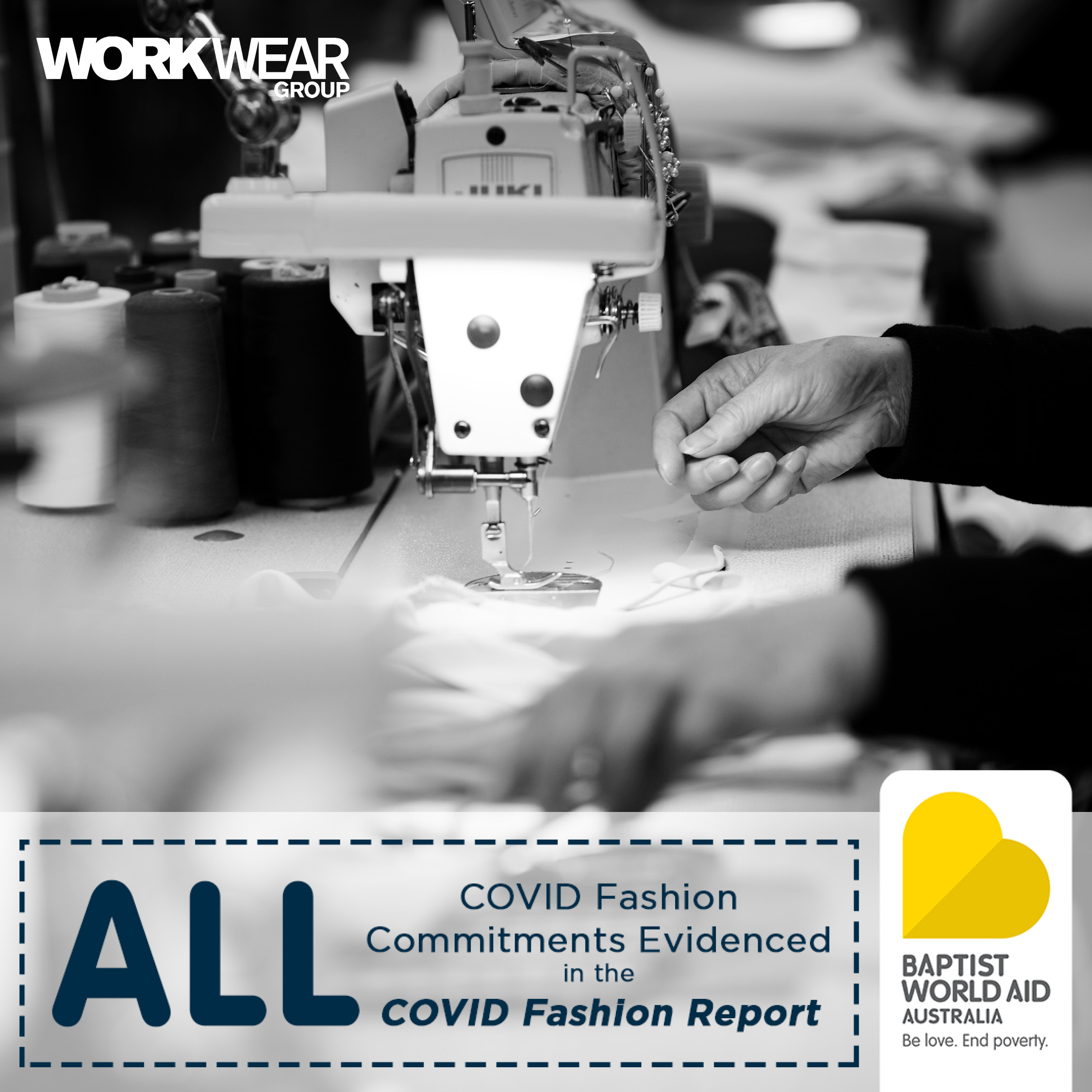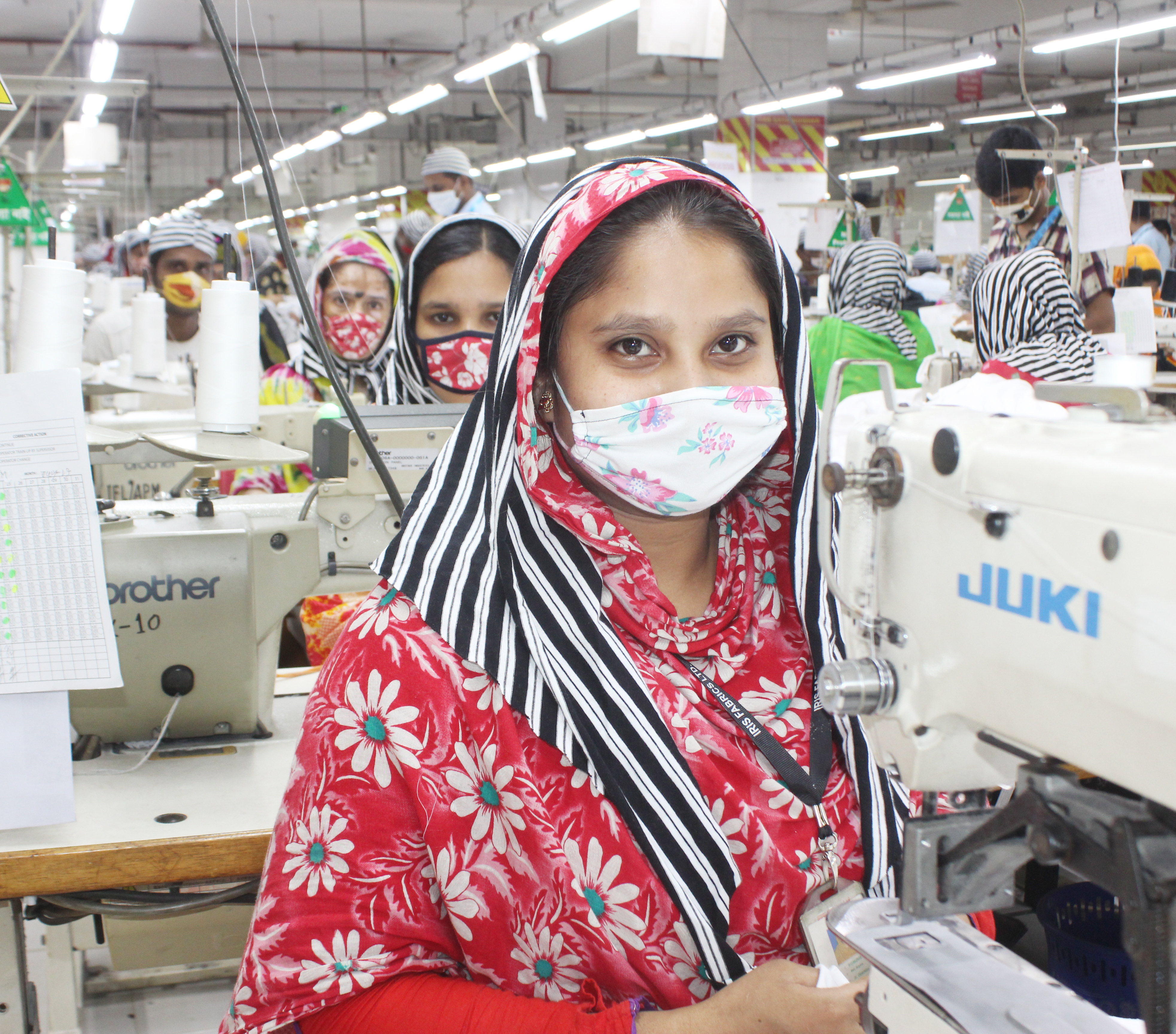Ethical sourcing audit program

To mitigate the risk of unethical practices occurring in supply chains, Wesfarmers’ divisions apply their own modern slavery and ethical sourcing audit programs that take a risk-based approach and consider suppliers of products (both goods for resale and goods not for resale) and services.
Notwithstanding the constraints caused by COVID-19 restrictions, this year, our divisions’ audit programs covered almost 2,100 (2020: 2,600) suppliers to our businesses. Suppliers in the audit programs must undertake an assessment as mandated by our businesses.
Wesfarmers retail businesses conduct announced or unannounced audits by their own teams or third parties. This year our divisions also recognised there would be delays or difficulties in scheduling ethical sourcing audits and as a result, adopted alternative mutually recognised audits or the use of Sedex Virtual Assessments. Where an audit identifies non-compliance, the factory is required to fix the issue within an appropriate period.
During the year, our divisions identified 386 (2020: 340) critical breaches across 138 (2020: 105) suppliers. Identifying critical breaches helps us identify potential modern slavery and ethical sourcing risks and we believe it is something all businesses should publicly report on, to continually improve and have a greater impact. The majority of critical breaches included allegations of excessive overtime, underpayment of wages, lack of transparency (record keeping and documentation), poor safety (building and fire) and unauthorised subcontracting.
Where non-compliance with the Wesfarmers Ethical Sourcing and Modern Slavery Policy is identified at a supplier site, the supplier is required to remediate the issue. If the supplier remediates the non-compliance, it is deemed to be an ‘approved’ supplier site. If the supplier is not willing or able to address a critical breach or it is considered a ‘business critical breach’ such as bribery or forced labour violation, the Group's business may exercise its rights to terminate their relationship with that supplier. Whenever a division terminates a relationship with a supplier due to an identified ‘business critical breach’, relevant information is promptly shared across the Group. In this way, the audit process is contributing to remediating supplier non-compliance and improving conditions for workers.
In line with Wesfarmers’ autonomous business model, our divisions set different thresholds for reporting critical breaches. In the 2021 financial year, the Wesfarmers divisions have achieved greater alignment by using the Sedex Members Ethical Trade Audit (SMETA) classifications as a baseline for defining critical breaches and setting their respective reporting thresholds. The SMETA ‘business critical’ classification has been adopted for reporting purposes by all divisions. The definition for SMETA ‘critical breaches’ has been adopted by Bunnings, Officeworks, WIS and WesCEF. Kmart Group has developed its own definition for critical breaches and it is disclosed in the Wesfarmers Basis of Reporting.
GRI 102-9, GRI 102-10, GRI 102-15, GRI 102-16, GRI 103-1, GRI 103-2, GRI 103-3, GRI 407-1, GRI 408-1, GRI 409-1, GRI 412-1, GRI 412-2, GRI 414-2


.jpg?sfvrsn=4ab613bb_1)